Post-Concussion Syndrome Leg Weakness: Causes and Treatment
Leg weakness after a concussion can significantly impact mobility and daily life. Patients may feel their legs are untrustworthy, worry about falling, or contend with stiffness and fatigue.
Published peer-reviewed research shows that Cognitive FX treatment leads to meaningful symptom reduction in post-concussion symptoms for 77% of study participants. Cognitive FX is the only PCS clinic with third-party validated treatment outcomes.
READ FULL STUDY
Many doctors aren’t aware that concussions can cause long-lasting symptoms, a condition commonly called post-concussion syndrome (PCS). As a result, they treat common symptoms rather than the underlying condition, which often involves prescription medications for each symptom. If you do manage to get a diagnosis, then the default treatment is often still medication — not because it’s the most effective option, but because many healthcare providers don’t have the connections or resources to offer other options.
To date, there is no medicine clinically proven to treat post-concussion syndrome. So, doctors prescribe meds to address specific symptoms, like headaches or sleep problems. But as long as the underlying issues go untreated, those symptoms won’t go away, even if they’re slightly improved by medication. But some patients end up on so many medications that the side effects are just as bad — or worse — than the original concussion symptoms.
At our post-concussion syndrome treatment clinic, we do things a little differently. We talk to every patient who walks through our doors about their initial injury, specific symptoms, and the medications they’re taking. They invariably tell us the same thing: meds just don’t work for them. Despite seeing thousands of patients over the years, we can’t name a single medication that has consistently helped a majority of our patients with the most common symptoms of concussion.
Fortunately, medication isn’t the only approach to relief from post-concussion syndrome. At Cognitive FX, we look at a patient's condition as a whole. We don’t rely on medication but instead use scientifically validated therapies to treat PCS.
In this article, we’ll explain…
90% of our patients show symptom improvement after just one week of treatment at our clinic. To determine if you’re eligible for post-concussion syndrome treatment at our clinic, schedule a consultation.

Most patients who come to us have been prescribed multiple medications to treat different symptoms. This includes, for example, painkillers or migraine medications for headaches, medication for nausea, sleeping tablets, antidepressants… the list goes on.
These patients often tell us that most of their medications are not effective. We’re not the only ones to detect this trend. Several studies investigating different medications for headaches, for example — ranging from over-the-counter non-steroidal anti-inflammatory drugs (NSAIDs) and acetaminophen to more specific analgesics, such as lidocaine and opioids — found limited evidence to suggest that these medications are consistently helpful for PCS patients.
Now, let’s delve into the reasons why most medication is ineffective for PCS patients:
Note: You don’t have to experience loss of consciousness to have a concussion or develop PCS. You can even get PCS from a neck injury or whiplash. If you have long-lasting symptoms after any injury affecting your head, it’s not your imagination, and you deserve to be taken seriously.
At the moment, there isn’t a single FDA-approved specific medication for the treatment of post-concussion syndrome.
To cover this gap, healthcare professionals prescribe their patients with medications for specific symptoms, such as headaches or problems sleeping. There are several problems with this approach.
The first is that these products were originally developed for patients whose symptoms resulted directly from their condition. For example, a migraine medication targets the specific chemical processes believed to result in migraines. Symptoms that stem directly from a condition are called primary symptoms.
In contrast, PCS patients experience secondary symptoms. For these patients, headaches might not be caused by the same chemical processes that cause primary symptoms. Instead, they have a number of possible causes, including changes in neurovascular coupling — one of the root causes of post-concussion symptoms.
Briefly, neurovascular coupling refers to the connection between nerve cells and blood vessels. In a healthy brain, these blood vessels deliver nutrients and oxygen to the exact areas in the brain that need it to perform a particular task. However, mild traumatic brain injuries (mTBIs) can disrupt this connection, which means certain areas in the brain may not work as expected. This condition is called neurovascular coupling dysfunction.
Because the brain controls most bodily functions, including memory, motor skills, heart rate, vision, breathing, among many other functions, concussion patients can experience a range of symptoms throughout the body, from gastrointestinal problems and memory loss to fatigue and headaches, depending on what areas were affected.
It’s no surprise then that a medication that was designed to fix migraine etiology isn’t going to work for all headaches stemming from PCS. These medications simply weren’t designed to fix the problems that lead to headaches and other symptoms in PCS patients.
Further reading: Guide to post-concussion syndrome headaches
The second difficulty is that most medications were not tested on people who sustained a brain injury (not to mention they were historically tested on male but not female populations). As a result, those medications may not respond the way we expect to the changes in metabolism and other issues that arise in post-concussion syndrome patients.
A concussion can and often does affect how your body processes and responds to medication. As a result, that medication may not work as intended and might come with an increased risk for side effects.
Although the use of over-the-counter pain relief — such as ibuprofen, acetaminophen, and aspirin — may be beneficial in the short-term to treat neck pain and headaches, frequent or excessive use may actually worsen symptoms and cause rebound headaches.
For example, a study found approximately 70% of adolescent patients with chronic post-concussion headaches were experiencing medication-overuse headaches. In this case, the patients were only using common painkillers (naproxen, ibuprofen, acetaminophen, and oxaprozin). After discontinuing those painkillers, most patients recovered completely; however, this process can be difficult for patients who have been taking medications for a long period of time.
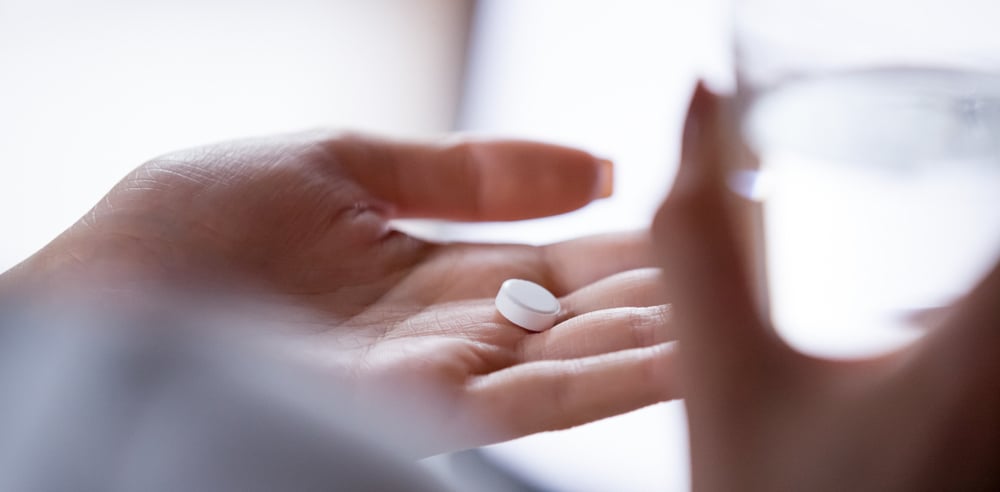
Sometimes, medication doesn’t work for PCS patients because it’s been prescribed in the wrong dosage. Different patients taking the same drug can have markedly different responses to the same dose. While many will get the intended results, some may get very little benefit, and others may even get unwanted side effects.
PCS patients being treated for conditions they already had before the mild TBI, such as anxiety and depression, may experience new difficulties with their medications.
In some cases, their pre-concussion symptoms get worse after the brain injury. If their brain isn’t processing their old medication in the same way, it may not work well, or it might cause new side effects. These patients often have to try different brands and doses of the same type of medication.
They might also run into issues with medication interactions as they start taking more medicine for concussion symptoms.
As we’ve mentioned before, many patients come to us with a long list of medications they’ve been prescribed. The problem is that too many medications — referred to as polypharmacy — can become a serious problem. The more medicines you take, the higher the chances that you will suffer a negative interaction or unexpected side effects.
Overmedication is a hazard for PCS patients that is often overlooked. It's easier for doctors to simply prescribe another medication than it is to take the time to evaluate the need for each current medication. Sometimes, doctors prescribe additional medications to manage the side effects of the medications you’re already taking!
If you’re worried about taking too many prescription drugs, ask your family doctor or neurologist if you really need them all. Just make sure you don’t stop any medications abruptly without consulting your doctor; it may be dangerous or even life-threatening to stop taking certain medications without weaning off them slowly.
Further reading: What neurology practices can and can’t do for post-concussion syndrome
Another problem for PCS patients is that medication may not be prescribed in the most suitable form.
Pills are the most convenient and therefore the most commonly used way to administer medication. In this case, the primary site of drug absorption is usually the small intestine. But if PCS patients experience gastrointestinal problems, such as diarrhea and vomiting, absorption may be altered. Even changes to gut motility can affect how medication is absorbed.
Further reading: Post-concussion nausea
If a medication isn’t working well for you, ask your doctor if it comes in a different form. Injections, infusions, patches, or creams could be an alternative.

All prescription drugs come with potential complications, but given the complexity of their condition, post-concussion syndrome patients are at a particularly high risk. These may range from mildly annoying to serious adverse events that can be life-threatening and potentially fatal.
Having post-concussion syndrome is essentially a risk factor for experiencing medication side effects. For example, a study found that about 1 in 4 adolescent patients experience side effects, including heart palpitations and irritability, after taking amitriptyline to treat headaches. Similarly, about 1 in 3 adult patients dropped out of a study using amantadine due to side effects.
Most prescription drugs need to be metabolized in the liver in order to be eliminated from the body. However, this mechanism may be hindered in PCS patients because more blood than usual is being diverted to the brain. This inevitably affects other internal organs such as the liver and gut. When the liver becomes less able to metabolize medication, the chances of experiencing side effects increase.
The most common type of side effects involve the gastrointestinal system, including abdominal pain, nausea, and diarrhea. Skin conditions are also common, including rashes and itchy spots. Some patients experience vision problems ranging from temporarily blurred vision to permanent damage.
Further reading: Vision problems after concussion
If you develop mild side effects from a non-vital medication, it is up to you to decide whether to continue that medication or not. You might decide that the side effect is still preferable to the symptom the medication is treating. But dangerous side effects — such as sudden severe drowsiness, a steadily worsening headache, slurred speech, confusion, persistent vomiting, etc. — mean you need to stop the medication as soon as is safely possible. Your doctor can advise you on what’s dangerous or not. If you feel your condition is rapidly deteriorating, don’t wait; visit your nearest emergency room for immediate care.
If you’re starting a new medication, our advice is to…
Not all medications can be stopped quickly. And if you have been taking the same medication for a long time, it can be challenging to stop. Stopping a medication can cause a variety of symptoms including fatigue, nausea, headaches, dizziness, anxiety, and even problems sleeping.
Work closely with your doctor on how to wean off a medication when you both agree it’s time to stop.

Children can get PCS just like adults, but treating their condition is even more challenging. There are many medications that should not be prescribed to pediatric patients, not only because of immediate side effects but also because doctors don’t know exactly what the long-term effects are.
For example, children can be prescribed lamotrigine to treat behavioral outbursts that develop after their head injury, but there are no long-term studies to evaluate the consequences that taking such a strong drug can have on a brain that is still developing.
In addition, children can have very different side effects from medications than adults. For example, SSRIs can put children at risk of suicidal thoughts.
Further reading: Post-concussion syndrome in children
Medications can also bring on problems if they don’t mix well with something else in your body, including another medication, a certain food, or a supplement. For example, grapefruit juice can make birth control ineffective! When this happens, it's called a drug interaction.
An interaction can be unpredictable: It can make your medication become less active, or it can become too strong and cause side effects. The symptoms can vary greatly, depending on the drugs you’re taking and how they’re interacting.
To avoid interactions as much as possible, work closely with your doctors. Make sure they know all the prescription drugs, including any vitamins and natural supplements, that you’re taking. This is particularly important if you get different medications and concussion care options from several physicians. Also, before taking a new medication, check if there are any known interactions.
Several sites — like the Drug Interaction Checker from Drug Bank — allow you to input your medication to see if there are any known interactions with your other medications or with certain foods.
Most medications are not very effective for PCS patients, but they do not cause serious or long-term side-effects. However, there are a few pharmacological options that you should take with caution, or at least discuss thoroughly with your doctor before taking.
These include:
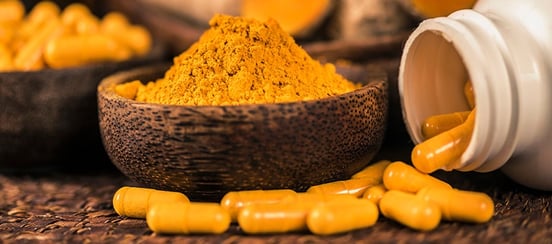
Certain practices and supplements may be helpful in managing specific symptoms of post-concussion syndrome. In this section, we cover specific approaches to handle mild to severe headaches, sleep problems, hormone dysregulation, and emotional symptoms for day-to-day management of concussion symptoms.
Although headaches are common after a concussion, they are very challenging to treat due to a myriad of possible underlying causes.
Patients often like to take over-the-counter painkillers, including NSAIDs or acetaminophen (Tylenol), to control symptoms in the short-term, but long-term use of such medications may lead to rebound headaches that further complicate concussion recovery.
Some alternative strategies include...
In addition, there are some indications that post-concussion headaches can be helped by magnesium supplements. Studies have shown that magnesium can relieve migraine and cluster headaches in patients with chronic conditions, including PCS patients.
Talk to your doctor before starting any treatment with magnesium, especially if you already take other medication for headaches.
Note: We’ve created a course on post-concussion headaches, including what causes them and how to treat them more effectively without medication. Learn more here.

Sleep disturbance is a well-known and frustrating symptom after a traumatic brain injury (TBI). Patients may experience trouble falling asleep or altered sleep/wake patterns that can exacerbate other symptoms, such as fatigue and anxiety.
Our first recommendation would be to limit caffeinated drinks to the morning (or ideally, avoid caffeine and alcohol entirely after a concussion).
Follow proper sleep hygiene as best you can (limit exposure to electronic devices before bed, follow a set sleep schedule, etc.). In addition, over-the-counter melatonin is nontoxic and safe —making it an ideal candidate to treat sleeping disorders after a head trauma. You may have to experiment until you find the right dosage.
While many medications are unhelpful to PCS patients, some medications for hormone problems after concussion are extremely helpful. Most patients are not aware that a concussion can cause hormone imbalance.
Doctors treat this imbalance using a variety of medications and supplements that can either stimulate or replace hormonal chemicals in the body. These treatments are often referred to as hormone therapy. Your endocrinologist can help you devise the best post-concussion hormone treatment plan for you. This medication will not treat your post-concussion syndrome, but it will help you deal with some of the long-term effects.
Further reading: Post-concussion hormone changes
Emotional symptoms, such as anxiety and depression, are commonly reported after a traumatic brain injury. The best option for PCS patients is to receive psychological help, such as cognitive behavioral therapy. Many of our patients often find that treatment of post-concussion syndrome at our clinic quickly resolves their emotional symptoms.
Nutrition has an outsized effect on mood, especially after brain injury. This may have something to do with the ‘gut-brain axis’ which links stomach health and mental health. Following a low-inflammation diet like the Mediterranean Diet could help you manage emotional symptoms.
Further reading: Nutrition for post-concussion syndrome
If you think medication is necessary, discuss your options with your psychiatry doctor.
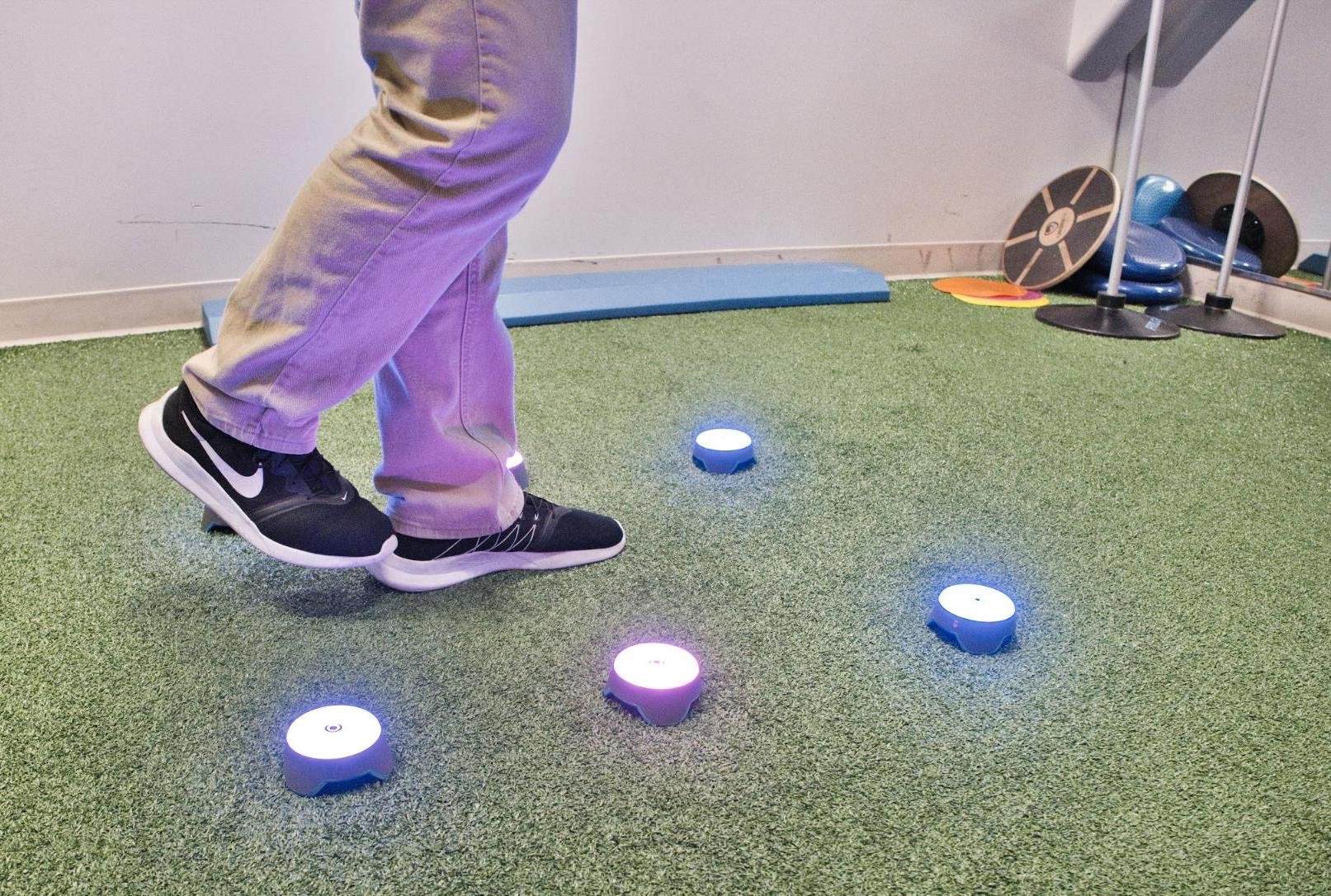
Instead of trying to cover individual symptoms of a concussion with medication that is not suitable for PCS patients, we believe the best medical care option is to address the underlying causes of post-concussion syndrome. Resolving post-concussion syndrome is the primary treatment goal of our clinic, Cognitive FX.
Before you can start treatment with us, you must undergo a functional Neurocognitive Imaging (fNCI) scan. This is a type of MRI that can measure neurovascular coupling in 56 different areas in the brain. While you’re being scanned, you must complete a series of cognitive tasks to allow our doctors to analyze how certain areas of your brain perform when they need to complete a task. The scan shows not only which areas of the brain are operating normally and which ones were affected by the concussion, but also how different areas communicate with each other.
Further reading: Can an MRI detect post-concussion syndrome? and Can a CT scan detect post-concussion syndrome?
As we described earlier, neurovascular coupling dysfunction is one of the main causes of lingering symptoms after a concussion. Some additional causes of persistent post-concussion symptoms include…
Our team creates a custom treatment plan based on your scan results, medical history, and other physical and neuropsychological test results. We’ll also discuss which medications you're taking. Most of the time, you won’t need to stop taking those medications before starting treatment at our clinic. But you will need to stop taking certain medications, especially stimulants, before treatment because they could inhibit treatment efficacy.
During our Enhanced Performance in Cognitive (EPIC) Treatment, our therapists combine aerobic exercise and a variety of different therapies, including neuromuscular therapy, occupational therapy, cognitive therapy, psychotherapy, sensorimotor therapy, and vestibular therapy, to name just a few. We’ve chosen these therapies specifically for their combined ability to rehabilitate neurovascular coupling dysfunction, vestibular problems, vision issues, and ANS dysfunction.
Sessions of aerobic exercise typically involve short bursts on a stationary bike or treadmill. Our therapists are always present to adjust intensity and duration for each patient. The aim is to increase the heart rate enough to promote brain healing, but not too much to trigger multiple symptoms.
Further reading: How cardio intervals help patients recover
Our neuromuscular and physical therapists not only assist you during aerobic exercise sessions, but also provide massage therapy, especially on the neck and head, to help relieve headaches and improve vision symptoms.
During these sessions, our therapists may combine cognitive and physical activities, such as balancing on a Bosu ball while playing catch and naming animals for each letter of the alphabet.
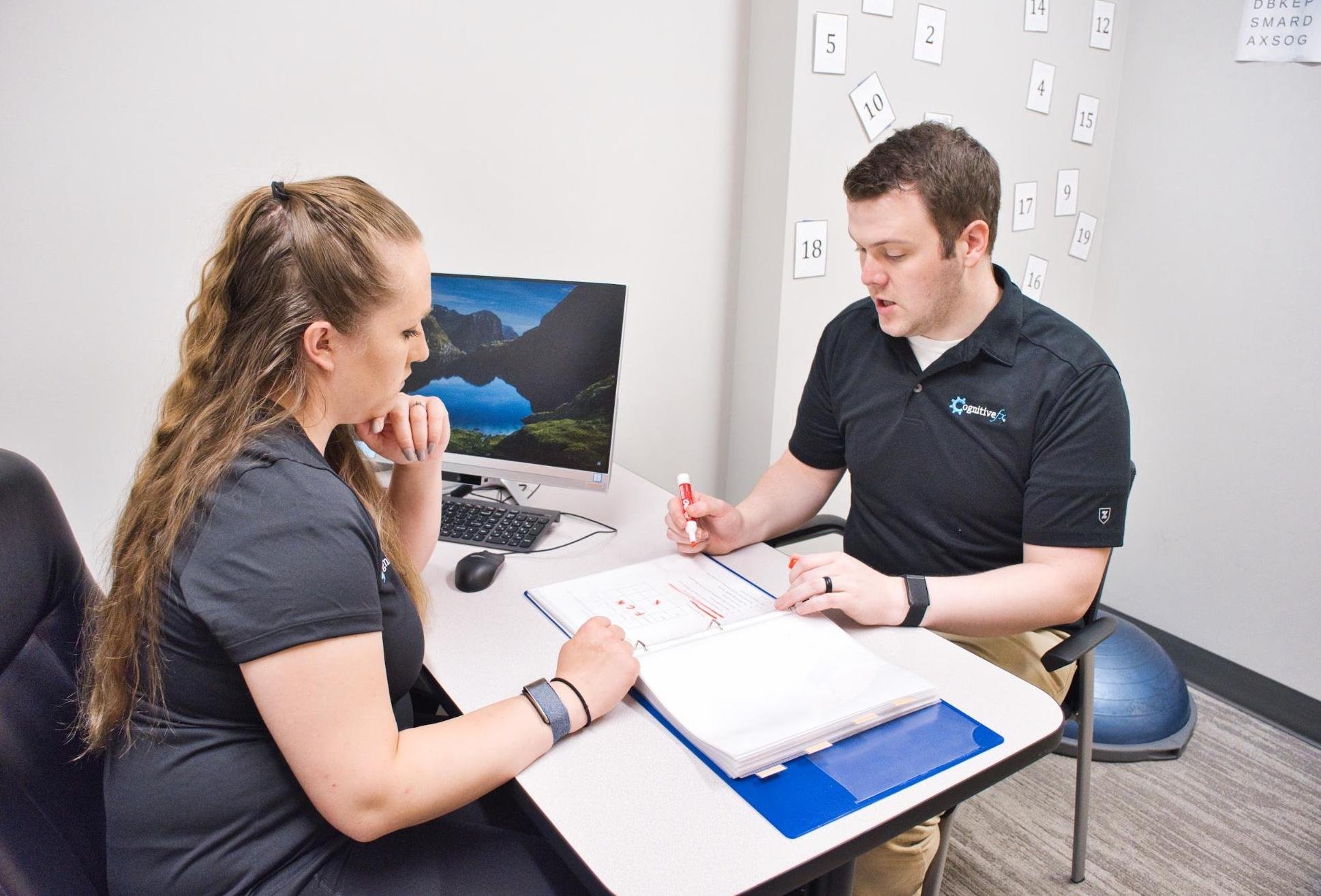
The aim of cognitive and occupational therapy is to address cognitive deficits and improve skills like memory, attention, decision making, and reasoning. Occupational therapy is designed to help you cope with your daily activities and relearn as many skills as possible, whereas therapy to improve cognitive symptoms involves solving logic puzzles, and identifying word patterns while listening to distracting sounds, memorizing pictures, and more.
Vestibular therapy involves movement and other exercises to address balance problems. The aim is to enhance gaze stability, eliminate vertigo, and improve posture. For example, our therapists may ask you to catch a ball while standing on a balance board or to walk around obstacles while keeping your eyes focused on a fixed point.
During treatment, we also offer vision therapy including Dynavision, visual tracking exercises, the Brock String exercise, and some other computerized technologies. If you need further therapy after your treatment, we’ll help you identify a therapy provider in your area.
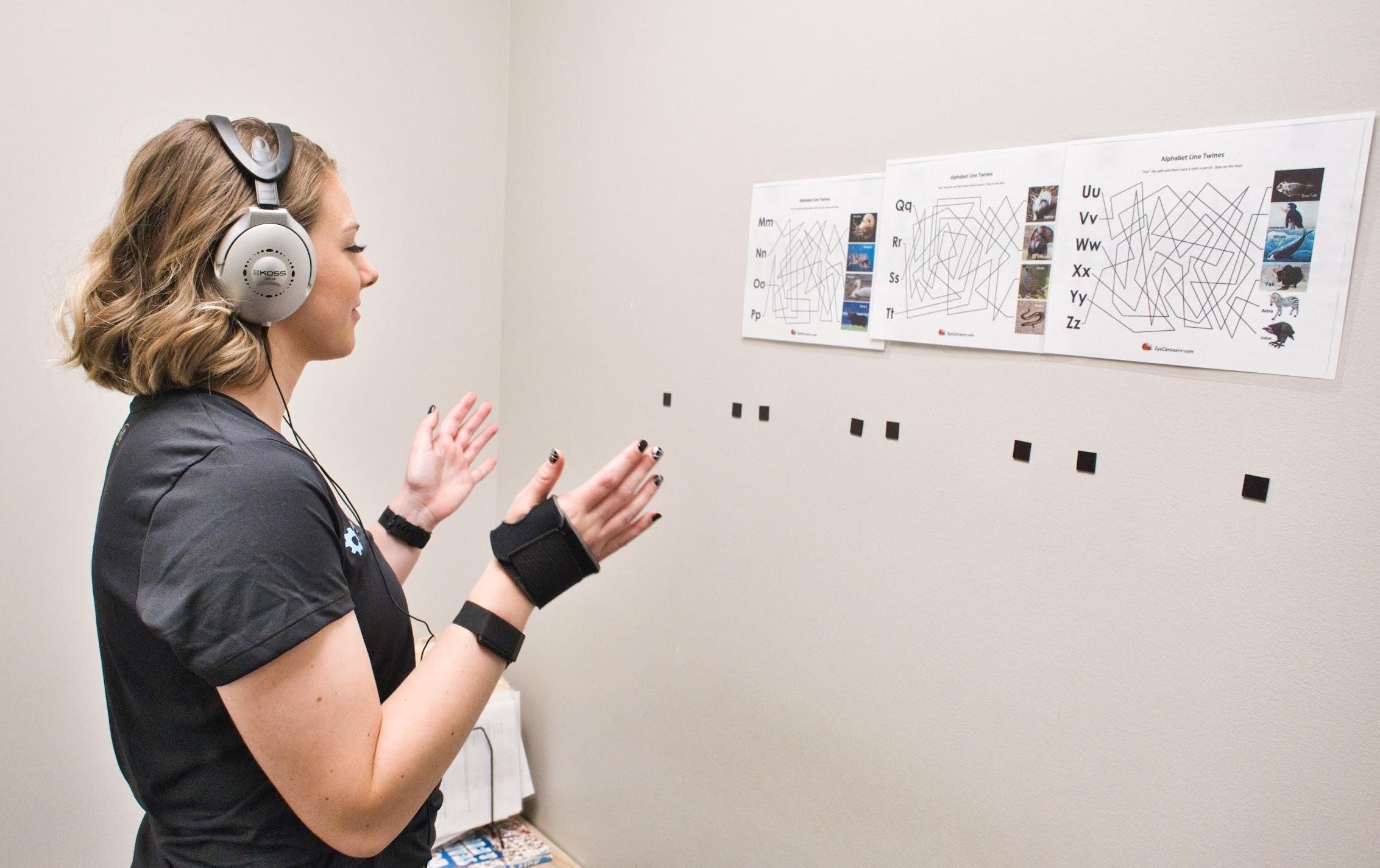
During sensorimotor therapy, patients move in time to the rhythm of a metronome. Once they’ve mastered that, our therapists can increase the difficulty by adding cognitive and vision activities. For example, you may be asked to clap and stomp in time with a beat while completing a visual search puzzle.
All patients meet at least twice with our psychologist. Patients also attend a session on mindfulness to learn how to use certain techniques to help their brains rest. If you need further treatment, we may recommend cognitive behavioral therapy (CBT), which is a highly effective treatment for mood disorders.
After treatment, you’ll undergo a second fNCI scan to see how your brain function is changing. Some patients see significant improvements after just one week, while for others, their brain is still reorganizing its connections. Regardless, the average symptom improvement patients report is 60% — after just one week.
Patients also meet one last time with our therapists to organize a post-care plan, including a series of exercises to do at home to maximize your chances of recovery, plus recommendations for follow-up therapies in your area of residence.
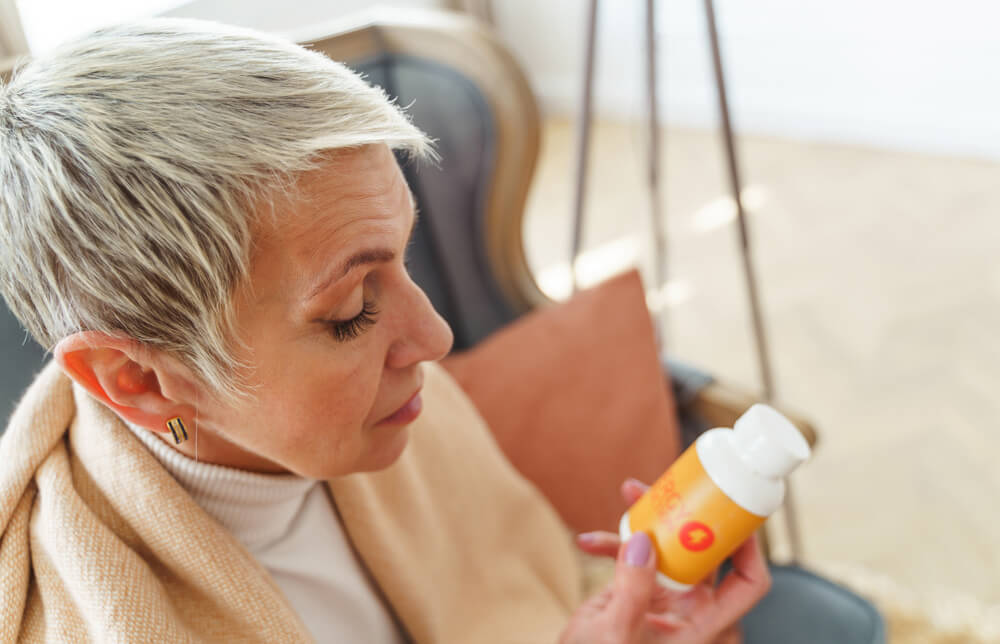
There are many reasons medication for post-concussion syndrome is ineffective or even dangerous:
Amidst all of these difficulties is another: For patients who may be experiencing short-term memory loss and problems concentrating, keeping track of what meds to take and how these may interact with food or supplements can be extremely difficult.
It’s yet another reason why we offer active rehabilitation as a post concussion treatment option for post-concussion syndrome rather than prescription drugs.
On average, our patients’ symptoms improve by 60% after just one week of treatment at our center specialized in treating post-concussion syndrome. To see if you are eligible for treatment, sign up for a consultation.

Alina Fong, Ph.D. is a clinical neuropsychologist and the Clinical Director and Co-Founder of Cognitive FX. She earned her Ph.D. in Clinical Neuropsychology with an emphasis in Neuroimaging from Brigham Young University, where she received the American Psychological Association Division 40 Graduate Student Research Award for her neuroimaging research. Dr. Fong has over 17 years of clinical experience treating traumatic brain injury, beginning with her work at the VA Salt Lake City Healthcare System and Utah Valley Regional Medical Center, where she directed the neurotrauma rehabilitation and sports concussion clinics. She developed the EPIC Treatment protocol and has personally overseen treatment for nearly 8,000 brain injury patients, including professional athletes from the NFL, NHL, and Olympics. She serves as Vice President of the Brain Injury Alliance of Utah, sits on the board of the United States Brain Injury Alliance, and advises PINK Concussions. Dr. Fong has authored peer-reviewed research on functional MRI and concussion treatment and has presented at over 60 medical conferences, including the Federal Interagency Conference on TBI and the American Medical Society for Sports Medicine.

Leg weakness after a concussion can significantly impact mobility and daily life. Patients may feel their legs are untrustworthy, worry about falling, or contend with stiffness and fatigue.

After suffering a mild traumatic brain injury, you might expect to feel off for a few days before being able to function at your normal level again. However, a rapid return to normal is not the case...
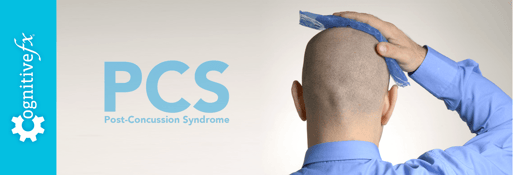
In post-concussion syndrome (PCS), a patient with a mild traumatic brain injury (mTBI) experiences persistent symptoms from the injury. If left untreated, the symptoms might last months, years, or...
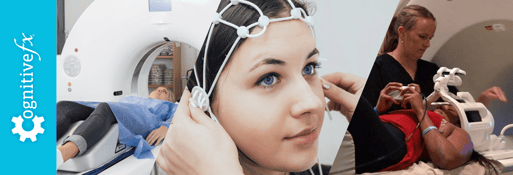
If you’re searching for answers and think you might have post-concussion syndrome (PCS), the path to diagnosis can be challenging. Few medical professionals are experts on the condition, and many...

Traumatic brain injuries (TBIs) can change how a person experiences and expresses their sexuality. For some, the effects are subtle. For others, head injuries can cause dramatic changes to their sex...
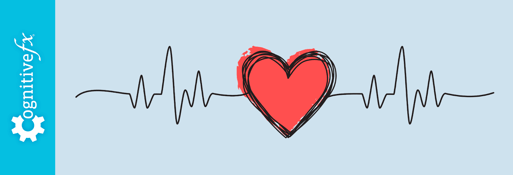
Perhaps this sounds familiar: You wake up from a relaxing nap expecting to feel refreshed, but instead, your heart is pounding for no reason. Or you stand up after a few hours on the couch and feel...
Published peer-reviewed research shows that Cognitive FX treatment leads to meaningful symptom reduction in post-concussion symptoms for 77% of study participants. Cognitive FX is the only PCS clinic with third-party validated treatment outcomes.
READ FULL STUDY